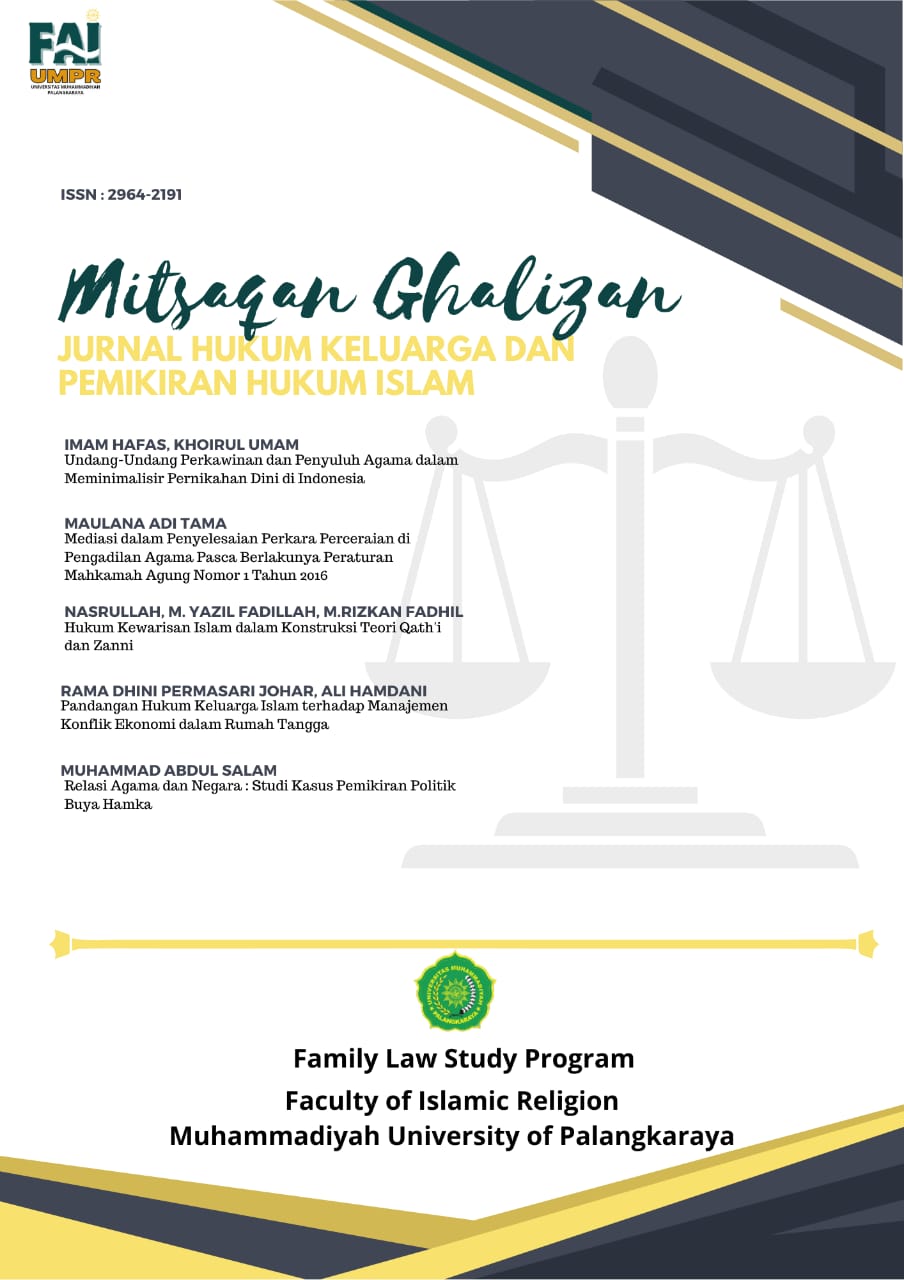Relasi Agama dan Negara: Studi Kasus Pemikiran Politik Buya Hamka Relations between Religion and the State: A Case Study of Buya Hamka's Political Thoughts
Main Article Content
Abstract
Hamka's political thoughts and behavior are based on his view of the interrelationship between religion and the state. Hamka has no objection to the statement that 'Islam is a religion and the state states, the correct formulation is Islam is a religion. his belief above that the ideals of monotheism cannot be implemented if it is not accompanied by strength. And Muslims should be proud, because since the beginning of its establishment, this Islamic religion has not only been an example of how to carry out the prayers it teaches, but also how to establish a state and maintain politics, and this has been blatantly demonstrated, Hamka wrote. It was explained that Muhammad SAW was present in the Arabian Peninsula with the teachings of monotheism and had united the tribes there so that later they would become a strong country and a respected nation
Downloads
Article Details

This work is licensed under a Creative Commons Attribution-ShareAlike 4.0 International License.
References
Hamka, ‚Khilafaat,‛ dalam Panji Masyarakat, no 195, tahun XVII, 15 Maret 1976.
Hamka, ‚Perbandingan Sedjarah‛, dalam Hikmah, no 15-16, tahun V, 16 April 1952
Hamka, Kenang-kenangan Hidup, (Jakarta: Gema Insani. 2018)
Hamka, Revolusi Agama Menudju Negara, (Jakarta: Pustaka Islam, 1952)
Hamka, Studi Islam, (Jakarta: Pustaka Panjimas, 1983)
Hamka, Tafsir al-Azhar jilid 2, (Jakarta: Gema Insani, 2015)
Nasir Tamara, dkk. (ed), Hamka Di Mata Hati Umat, (Jakarta: Sinar Harapan, 1983).
Mun’im Sirry, Polemik Kitab Suci: Tafsir Reformasi Atas Kritik Al- Qur’an Terhadap Agama Lain, (Jakarta: Gramedia, 2012).
